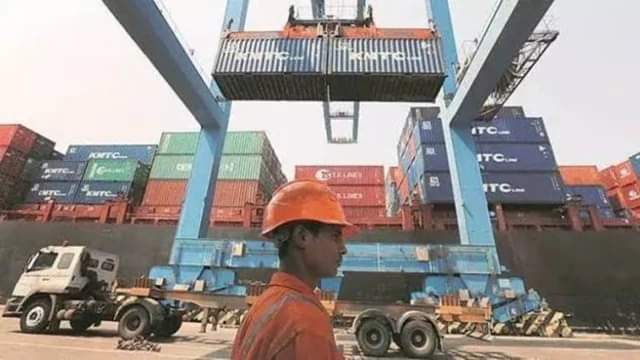Over 20,000 Indian Dockers To Shutdown 12 Major Ports Over Unmet Demands
Five federations namely: All India Port and Dock Workers’ Federation, All India Port and Dock Workers Federation (workers), Water Transport Workers Federation of India, Indian National Port and Dock Workers Federation, and Port, Dock and Waterfront Workers Federation of India are set to shutdown twelve major ports in the country on Wednesday over unmet pay.
The last-minute negotiations spanning two days have gathered pace after about 20,000 permanent workers across 12 major ports in the country decided to strike starting Wednesday citing unmet demand of pay revision and allowances.
The Indian Ports Association (IPA), under the Ministry of Ports, Shipping and Waterways, began negotiations with representatives of port workers’ unions from various parts of the country on Monday to dissuade them from going on an indefinite strike starting on 28 August, sources familiar with the development told The Indian Express.
The major port operators and the workers’ federations were reportedly set to sign a five-year wage revision agreement before the expiry of the previous wage pact on 31 December 2021. However, it has been pending for the last two years.
While the Ministry of Ports, Shipping and Waterways is leading the negotiations, exporters have reached out to the Ministry of Commerce and Industry seeking help in resolving the issue. Exporters are worried over the loss of Christmas orders from the West, which typically begins around this time.
Moreover, they are concerned about disruptions amid already strained maritime routes due to the Red Sea crisis.
short article insertThe annual cargo handling capacity of major Indian ports such as Chennai, Cochin, and Mumbai is about 1.62 billion metric tonnes, according to the official numbers. India exported goods worth $437 billion, with imports estimated at $677 billion in FY24. Queries emailed to the Ministry of Ports, Shipping and Waterways and the Ministry of Commerce and Industry on Monday remained unanswered at press time.
- Advertisement -
“The strike could have a massive impact. If the stevedoring (loading and unloading operations) process carried out by the workers is hit, all incoming consumables and exports will be stuck at the 12 major ports. Right now, they are saying private ports will not be impacted, but labour unions may stand outside ports and terminals and force the private sector labour to participate as well,” Anil Devli, Chief Executive Officer, Indian National Shipowners’ Association, told The Indian Express.
Devli said that the timing of the strike call is worrying since exporters are gearing up to cater for Christmas orders from Western markets, and a possible disruption could also hurt Indian imports of raw materials and fuel. He stated that a disruption in ports could also raise the risk of the congestion surcharge that ships charge.
Advertisement
“No resolution could be found during the National Coordination Committee (NCC) meeting that took place on Saturday, and various workers’ federations who have assembled under NCC are, at the moment, going ahead with the strike called from 28 August unless a last-minute solution is found,” Devli said.
Notably, the shipping ministry formed a bipartite wage negotiation committee in March 2021, and the workers submitted their demands six months later, ahead of the expiration of the previous agreement in December 2021. Although the wage negotiation committee met seven times, it failed to meet the port workers’ demands, according to a Reuters report last week. The workers’ demands include pay scale revisions, payment of arrears, and protection of existing benefits.
Director General and CEO of the Federation of Indian Export Organizations (FIEO), Ajay Sahai, said that exporters have reached out to the Ministry of Commerce and are also working towards finding a resolution to avert any disruption in trade.
“The government is constructively engaging with the workers, and there is another meeting on Tuesday to reach a resolution. We have also reached out to the commerce ministry. However, the timing of the strike call is extremely unfortunate as there are already shortages of ships and containers, and a disruption at this point could hit the domestic industry as well as international trade,” Sahai said.
Sahai added that a disruption at this point could drive up air freight rates for essential goods and cause disruptions in the domestic industry too. Air freight rates have already surged sharply as the Red Sea crisis has pushed demand for air transport.




Comments are closed.